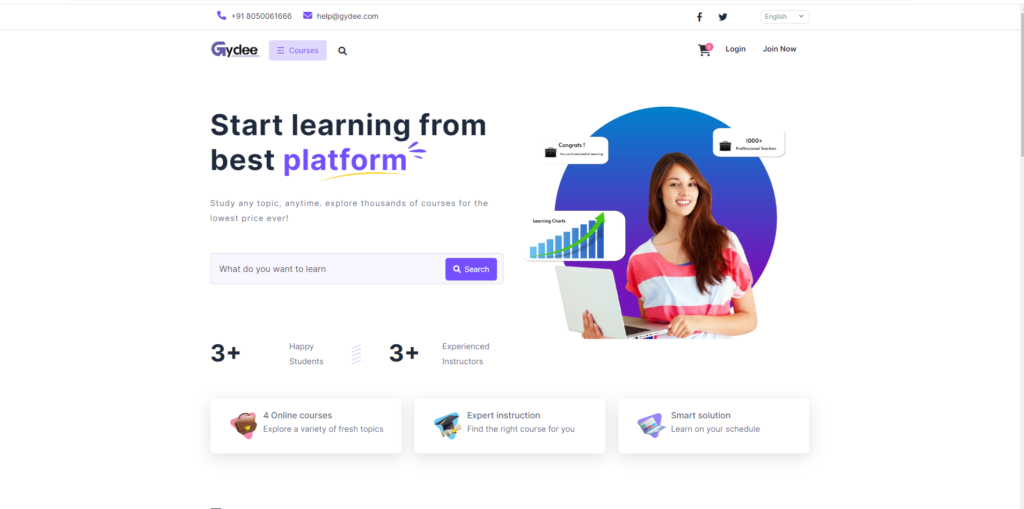
Introduction
In today’s digital age, having a website is as essential as having a phone number or a physical address for your business. But what exactly is a website, and how can it benefit your business? Let’s dive into the world of websites and explore their significance in the modern business landscape.
Understanding Websites
A website is a collection of interconnected web pages that are accessible through the internet. It serves as an online platform where information is displayed, and users can interact with content through various means such as reading articles, purchasing products, or contacting businesses.
History of Websites
The journey of websites began in the early 1990s with the advent of the World Wide Web. Initially, websites were simple text-based pages with limited functionality. However, as technology evolved, so did the capabilities and design of websites, transforming them into the dynamic and interactive platforms we see today.
Evolution of Website Design and Functionality
From basic HTML pages to complex content management systems (CMS) and e-commerce platforms, website design and functionality have come a long way. Modern websites incorporate various multimedia elements, interactive features, and advanced technologies to enhance user experience and engagement.
Components of a Website
To understand how a website functions, it’s essential to know its primary components:
Domain Name
A domain name is the address of your website on the internet, such as www.yourbusiness.com. It is unique and helps users find your site easily.
Web Hosting
Web hosting is a service that provides the necessary infrastructure to store and manage your website’s files, making them accessible online.
Website Files and Structure
Website files include HTML, CSS, JavaScript, images, videos, and other media. The structure of these files determines how your website looks and functions.
Types of Websites
Websites come in various types, each serving different purposes:
Static Websites

Static websites display fixed content that doesn’t change unless manually updated. They are simple and cost-effective but lack interactivity.
Dynamic Websites

Dynamic websites generate content on-the-fly based on user interactions or database queries. They offer a more personalized and interactive experience.
E-commerce Websites

E-commerce websites are designed for online shopping, allowing businesses to sell products and services directly to customers.
Blogs and Personal Websites
Blogs are regularly updated websites where individuals or businesses share articles, insights, and opinions. Personal websites often serve as online portfolios or resumes.
Business and Corporate Websites
These websites provide information about a company, its products or services, and contact details. They often include features like customer support and business inquiries.
Importance of Websites for Businesses
Having a website is crucial for businesses of all sizes. Here’s why:
Establishing Online Presence
A website acts as your digital storefront, making it easier for potential customers to find and learn about your business.
Enhancing Credibility and Trust
A professional website builds credibility and trust with customers, showing that your business is legitimate and trustworthy.
Providing Information and Customer Support
Websites offer a platform to provide detailed information about your products or services and offer customer support through FAQs, live chat, or contact forms.
Benefits of Having a Website
Accessibility and Convenience
Your website is accessible 24/7, allowing customers to access information or make purchases at their convenience.
Marketing and Advertising Opportunities
Websites provide a cost-effective platform for marketing and advertising, enabling you to reach a broader audience through SEO, social media, and other digital marketing strategies.
Analytics and Insights
Websites come with analytical tools that provide valuable insights into user behavior, helping you make data-driven decisions to improve your business.
Designing an Effective Business Website
Creating a successful business website involves several key elements:
User-Friendly Navigation
Easy and intuitive navigation ensures that users can find the information they need quickly and effortlessly.
Mobile Responsiveness
With the increasing use of mobile devices, having a mobile-responsive website is crucial to provide a seamless experience across all devices.
High-Quality Content
Engaging and informative content attracts visitors and keeps them coming back. It also plays a vital role in SEO.
Search Engine Optimization (SEO)
SEO is essential for improving your website’s visibility in search engine results, driving organic traffic to your site.
Web Development and Maintenance
Building a website is just the beginning. Regular maintenance is vital to keep it running smoothly:
Choosing the Right Web Development Tools
Selecting the right tools and platforms can streamline the development process and ensure your website meets your business needs.
Regular Updates and Security
Regular updates and security measures protect your website from vulnerabilities and ensure it remains functional and secure.
Backup and Recovery
Implementing a robust backup and recovery plan ensures that your data is safe and can be restored in case of any issues.
E-commerce Integration
For businesses selling products online, integrating e-commerce features is essential:
Setting Up an Online Store
Creating a user-friendly online store with easy navigation and a secure checkout process enhances the shopping experience.
Payment Gateways and Security
Implementing reliable payment gateways and security measures protects customer data and builds trust.
Managing Inventory and Orders
Efficient inventory and order management systems help streamline operations and ensure customer satisfaction.
SEO and Digital Marketing
Driving traffic to your website requires effective SEO and digital marketing strategies:
Importance of SEO
SEO improves your website’s search engine ranking, making it easier for potential customers to find you.
Social Media Integration
Integrating social media platforms allows you to reach a broader audience and engage with customers on multiple channels.
Content Marketing Strategies
Regularly updating your website with high-quality content, such as blog posts and articles, attracts visitors and improves SEO.
Measuring Website Performance
Tracking your website’s performance helps identify areas for improvement:
Key Performance Indicators (KPIs)
KPIs such as traffic, bounce rate, and conversion rate provide insights into your website’s effectiveness.
Using Tools Like Google Analytics
Google Analytics and other tools offer detailed data on user behavior, helping you make informed decisions.
Analyzing Traffic and User Behavior
Understanding how users interact with your website can help optimize the user experience and increase conversions.
Common Challenges and Solutions
Running a website comes with challenges, but they can be overcome:
Dealing with Technical Issues
Having a reliable technical support team can quickly resolve any issues that arise.
Ensuring Website Security
Implementing security measures, such as SSL certificates and regular security audits, protects your website from threats.
Overcoming Competition
Staying ahead of the competition requires continuous improvement and innovation in your website design and content.
Future Trends in Website Development
Staying updated with the latest trends ensures your website remains relevant and competitive:
AI and Machine Learning
Incorporating AI and machine learning can enhance user experience through personalized content and recommendations.
Voice Search Optimization
With the rise of voice assistants, optimizing your website for voice search can improve accessibility and reach.
Augmented Reality (AR) and Virtual Reality (VR)
AR and VR technologies offer immersive experiences, making your website more engaging and interactive.
Case Studies
Learning from successful websites can provide valuable insights:
Successful Business Websites
Analyzing the strategies of successful websites can inspire and guide your own website development.
Lessons Learned from Website Failures
Understanding common pitfalls and failures helps avoid similar mistakes in your own website.
Conclusion
A well-designed website is a powerful tool that can significantly benefit your business. It establishes your online presence, enhances credibility, provides valuable information, and opens up numerous marketing opportunities. Investing in a professional website is crucial for staying competitive in the digital age.
FAQs
What is the cost of creating a website?
The cost of creating a website varies depending on its complexity, features, and whether you hire a professional or use a DIY platform. It can range from a few hundred to several thousand dollars.
How long does it take to build a website?
The time it takes to build a website depends on its complexity and the resources available. A simple website can take a few weeks, while a more complex site can take several months.
Can I create a website myself or should I hire a professional?
You can create a website yourself using website builders like WordPress or Wix. However, hiring a professional can ensure a more polished and functional result, especially for complex sites.
What are the essential features of a business website?
Essential features of a business website include a clear navigation menu, mobile responsiveness, high-quality content, contact information, and SEO optimization.
How often should I update my website?
Regular updates are crucial for maintaining security and functionality. Additionally, updating content regularly can improve SEO and keep your audience engaged.





